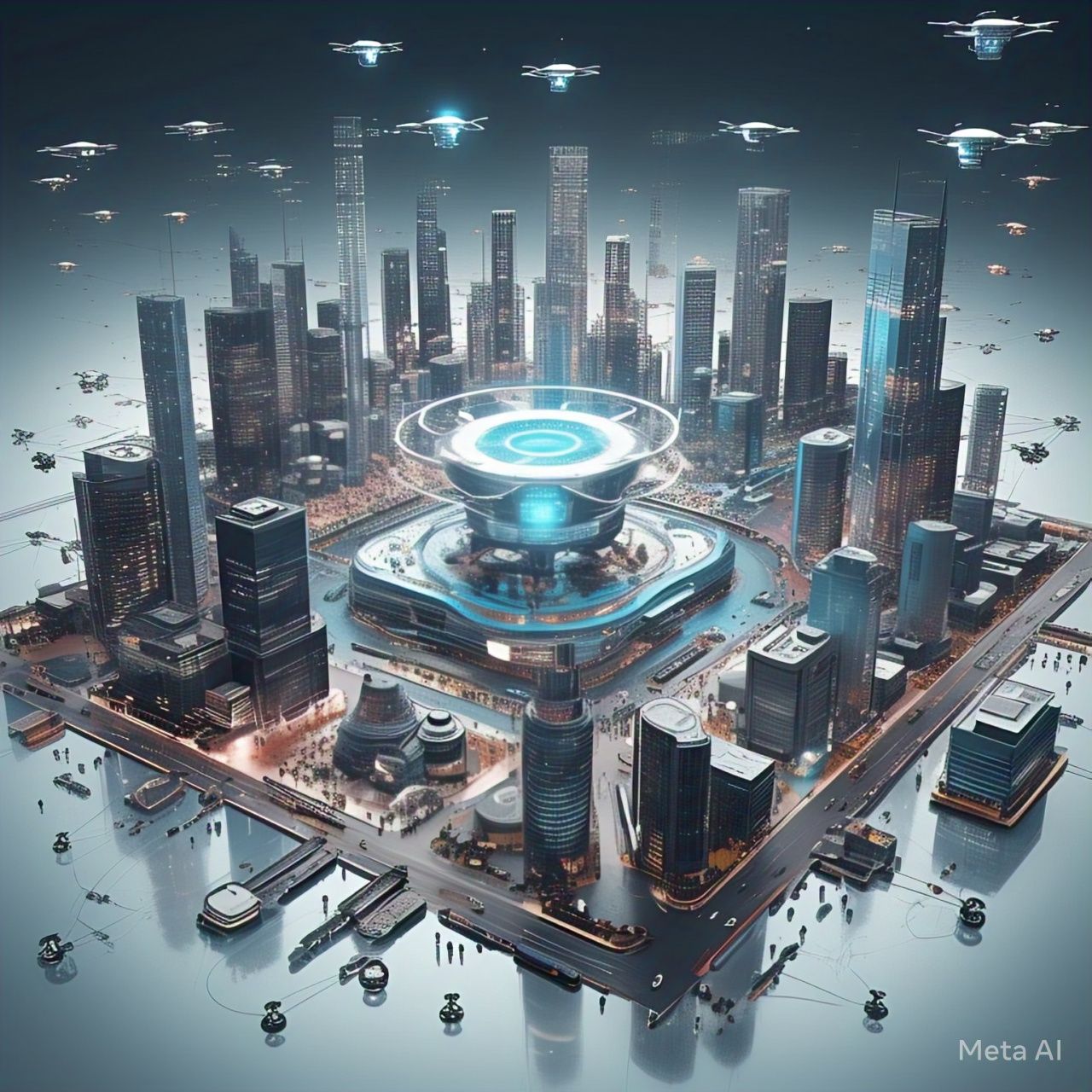Table of Contents
- Introduction
- The Role of AI in Software Development
- Key AI Technologies Transforming Software Development
- AI in Code Generation and Automation
- AI in Software Testing and Debugging
- AI-Powered DevOps and Continuous Integration
- AI in Cybersecurity for Software Development
- Challenges and Limitations of AI in Software Development
- Future Trends of AI in Software Development
- Conclusion
- FAQs
Introduction
Artificial Intelligence (AI) is reshaping industries worldwide, and software development is no exception. AI-driven tools and techniques are automating complex tasks, improving efficiency, and enhancing the quality of software products. From intelligent code generation to advanced debugging and automated testing, AI is revolutionizing the way software is developed and maintained. In this article, we will explore how AI is transforming software development, the key technologies involved, and the future of AI-powered programming.
The Role of AI in Software Development
AI is being integrated into various stages of software development, from coding to deployment and maintenance. Some key areas where AI is making a significant impact include:
- Automating repetitive coding tasks
- Enhancing software testing and debugging
- Improving DevOps efficiency
- Strengthening cybersecurity in software development
- Optimizing project management and collaboration
Key AI Technologies Transforming Software Development
Several AI-powered technologies are reshaping software development. These include:
1. Machine Learning (ML)
ML algorithms help developers optimize code, predict potential bugs, and automate various software development tasks.
2. Natural Language Processing (NLP)
NLP enables AI to understand and generate human-like code, making programming more accessible to non-developers.
3. Generative AI (AI Code Assistants)
AI-powered tools like GitHub Copilot and OpenAI’s ChatGPT assist developers in writing code efficiently by suggesting improvements and generating code snippets.
4. Computer Vision
AI-driven computer vision tools help analyze and verify software UI components, ensuring consistency in design and user experience.
5. Automated Reasoning
AI-based reasoning systems assist in making logical deductions, verifying software correctness, and enhancing decision-making processes.
AI in Code Generation and Automation
AI is significantly streamlining code generation and automation, allowing developers to focus on more complex and creative tasks.
AI-Powered Code Generation Tools
| Tool | Description |
|---|---|
| GitHub Copilot | Uses OpenAI’s Codex to suggest and auto-complete code. |
| Tabnine | AI-powered code completion tool for various programming languages. |
| DeepCode | Analyzes code and provides AI-driven suggestions for improvements. |
Benefits of AI in Code Generation
- Speeds up development by automating repetitive coding tasks.
- Reduces human errors by offering AI-driven suggestions.
- Enhances code quality through intelligent recommendations.
AI in Software Testing and Debugging
Software testing is one of the most time-consuming phases in development. AI is helping to automate testing and improve debugging efficiency.
AI-Based Testing Tools
| Tool | Functionality |
| Test.ai | Automates mobile app testing using AI. |
| Applitools | Uses AI-powered visual testing to detect UI inconsistencies. |
| Functionize | AI-driven functional testing tool for web applications. |
Advantages of AI in Testing
- Reduces testing time by automating repetitive test cases.
- Enhances accuracy in identifying bugs and security vulnerabilities.
- Improves efficiency with self-healing test scripts.
AI-Powered DevOps and Continuous Integration
DevOps teams are leveraging AI to automate continuous integration and deployment (CI/CD) processes.
How AI Enhances DevOps
- Predictive analytics optimize software deployment strategies.
- AI-driven monitoring detects system anomalies and performance bottlenecks.
- Automated infrastructure management reduces manual intervention.
AI-Powered DevOps Tools
| Tool | Use Case |
| Harness AI | AI-driven software delivery automation. |
| Splunk AIOps | Uses AI to monitor and analyze IT operations. |
| Dynatrace | AI-based performance monitoring and anomaly detection. |
AI in Cybersecurity for Software Development
AI plays a crucial role in identifying and mitigating security risks in software development.
AI-Driven Cybersecurity Applications
- Threat detection and prevention: AI analyzes patterns to detect potential cyber threats.
- Automated security patches: AI identifies vulnerabilities and applies patches.
- Real-time monitoring: AI tools continuously scan for suspicious activities.
Popular AI Cybersecurity Tools
| Tool | Functionality |
| Darktrace | AI-powered threat detection and response. |
| Cylance | Uses ML to predict and prevent cyber attacks. |
| IBM Watson for Cybersecurity | AI-driven security intelligence platform. |
Challenges and Limitations of AI in Software Development
Despite its advantages, AI in software development has some challenges:
1. Lack of Transparency
AI-generated code may be difficult to interpret, leading to debugging challenges.
2. Ethical and Security Concerns
AI-powered tools can be exploited for malicious purposes, raising cybersecurity risks.
3. Dependence on High-Quality Data
AI models require extensive, high-quality datasets for accurate predictions and recommendations.
4. Integration Complexity
Incorporating AI into traditional development workflows requires skilled professionals and additional resources.
Future Trends of AI in Software Development
As AI continues to evolve, several trends are shaping the future of software development:
1. AI-Augmented Programming
AI will become an integral part of coding, offering real-time assistance and intelligent debugging.
2. Self-Healing Software
AI-driven software will detect and fix its own bugs and vulnerabilities without human intervention.
3. Low-Code and No-Code AI Platforms
AI-powered tools will enable non-developers to create applications using intuitive drag-and-drop interfaces.
4. AI in Agile Project Management
AI will optimize sprint planning, workload distribution, and risk assessment in agile software development.
5. AI for Ethical and Bias-Free Coding
Future AI models will focus on ethical coding practices, reducing biases in automated decision-making.
Conclusion
AI is revolutionizing software development by automating coding, enhancing testing, optimizing DevOps, and strengthening cybersecurity. While challenges remain, AI-powered tools are transforming how developers write, test, and maintain software. As AI technology continues to advance, it will further streamline software development processes, making them more efficient, secure, and innovative.
FAQs
1. How does AI improve software development?
AI automates repetitive tasks, enhances code quality, accelerates testing, and improves cybersecurity in software development.
2. Can AI replace human software developers?
AI can assist developers by automating tasks, but human expertise is still essential for creativity, problem-solving, and decision-making.
3. What are the best AI-powered coding tools?
Popular AI-powered coding tools include GitHub Copilot, Tabnine, DeepCode, and OpenAI’s Codex.
4. How does AI impact DevOps?
AI improves DevOps by automating CI/CD, monitoring system performance, and optimizing software deployment strategies.
5. What are the challenges of using AI in software development?
Challenges include AI transparency issues, cybersecurity risks, dependency on high-quality data, and integration complexities.
References
- Russell, S., & Norvig, P. (2021). Artificial Intelligence: A Modern Approach. Pearson.
- Goodfellow, I., Bengio, Y., & Courville, A. (2016). Deep Learning. MIT Press.
- McKinsey & Company. “AI and the Future of Software Development.” [Online].





